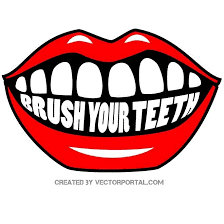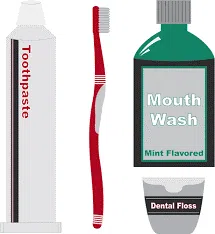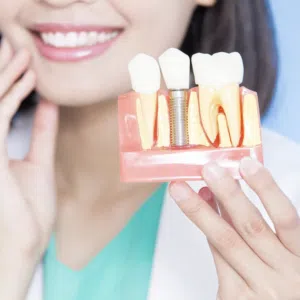GENERAL ORAL HEALTH TIPS: A Guide to a Healthy Smile.

Ensuring optimal oral health is essential for overall wellness. A healthy mouth contributes to a confident smile, prevents dental diseases, and even supports general health. Poor oral hygiene can lead to issues such as cavities, gum disease, and even systemic conditions like heart disease and diabetes. Here are some essential oral health tips to keep your teeth and gums in top shape.

1. Brush Your Teeth Properly
Cleaning your teeth twice daily is a fundamental aspect of maintaining proper oral hygiene However, it’s not just about frequency but also the technique. Follow these tips for effective brushing:
- Opt for a soft-bristled toothbrush to protect both your enamel and gums from damage.
- Position your toothbrush at a 45-degree angle and apply gentle, circular strokes.
- Spend at least two minutes brushing, ensuring all surfaces of your teeth are cleaned thoroughly.
- Don’t forget to brush your tongue to remove bacteria and prevent bad breath.
- Swap out your toothbrush every three to four months, or earlier if the bristles begin to wear out.
2. Floss Daily

Many people neglect flossing, but it’s essential for removing plaque and food particles from between teeth where a toothbrush cannot reach. Flossing helps prevent cavities and gum disease. To floss correctly:
Use about 18 inches of floss, winding most of it around your fingers and leaving an inch or two for working with.
Carefully guide the floss between your teeth and shape it into a ‘C’ around each tooth.
Refrain from forcefully snapping the floss against your gums to prevent irritation.
Ensure you use a fresh section of floss for each tooth.
3. Use Mouthwash

Mouthwash is not a substitute for brushing and flossing, but it can help reduce plaque, prevent gum disease, and freshen breath. Choose an alcohol-free mouthwash with antibacterial properties for the best results. Swish it in your mouth for about 30 seconds after brushing and flossing.
4. Eat a Tooth-Friendly Diet

A diet rich in vitamins and minerals helps strengthen teeth and gums. Consider these dietary tips:
Eat calcium-rich foods such as dairy products, leafy greens, and almonds to strengthen teeth.
Incorporate crunchy fruits and vegetables like apples and carrots to stimulate saliva production and naturally clean teeth.
Avoid sugary foods and drinks, as sugar feeds bacteria that produce acids leading to tooth decay.
5. Avoid Harmful Oral Habits

- Certain habits can harm your teeth and gums. To maintain good oral health, avoid:
- Smoking and tobacco use, which increase the risk of gum disease and oral cancer.
- Nail-biting, which can cause chips and cracks in teeth.
- Using your teeth as tools to open packages, which can lead to fractures.
- Chewing on hard objects like ice or pens, which can wear down enamel and cause breaks.
6. Visit Your Dentist Regularly
Routine dental visits are crucial for early detection and prevention of oral health problems. Dentists recommend scheduling checkups and cleanings every six months. During these visits, your dentist can:
- Identify early signs of cavities and gum disease.
- Provide personalized oral health advice and recommendations.
7. Protect Your Teeth During Sports
If you participate in sports, wearing a mouthguard can protect your teeth from injuries. Custom-fitted mouthguards offer the best protection against fractures and knocked-out teeth during high-impact activities.
8. Manage Dry Mouth
Saliva plays a crucial role in maintaining oral health by neutralizing acids and washing away bacteria:
- Stay hydrated by drinking plenty of water.
- Munch on sugar-free gum or suck on sugar-free lozenges to help boost saliva flow.
- Reduce your intake of caffeine and alcohol, as they can cause dehydration.”
- Use a humidifier at night if dry air is a problem.

9. Recognize the Signs of Dental Problems
Being aware of dental issues can help in seeking timely treatment. Common warning signs include:
Red, swollen, or bleeding gums.
Tooth pain or discomfort when chewing.
Receding gums or visible changes in tooth alignment.
If you notice any of these symptoms, schedule a visit to your dentist as soon as possible.
10. Teach Kids Good Oral Habits Early
Children should be taught good oral hygiene from an early age to develop lifelong habits. Some key tips for kids include:
Use a small amount of fluoride toothpaste to strengthen enamel.
Encourage them to drink water instead of sugary juices and sodas.
Make dental visits fun and positive to reduce anxiety.
Conclusion
Good oral health is essential for a beautiful smile and overall wellness. By following these simple yet effective oral health tips—brushing and flossing properly, eating a healthy diet, avoiding harmful habits, and visiting your dentist regularly—you can keep your teeth and gums in excellent condition. Remember, preventive care is always easier and less costly than treating dental problems later on. Prioritize your oral hygiene today for a lifetime of healthy smiles!
